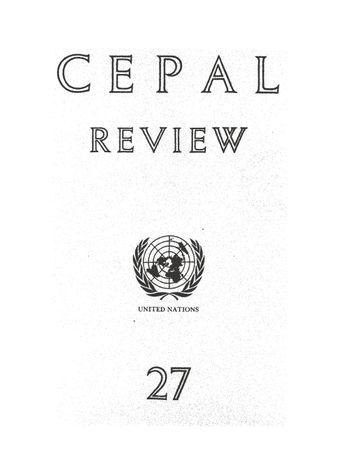-
A two-front attack to overcome the payments crisis of developing countries
- Source: CEPAL Review, Volume 1985, Issue 27, Dec 1985, p. 79 - 96
- Spanish
-
- 27 Dec 1985
Abstract
The developing countries’ payment crisis has reached dramatic proportions, and cannot be overcome without large-scale action compassing the two variables that determine payments capacity: the capacity to possess or create liquid assets and the capacity to generate foreign exchange income, especially by means of external trade. The measures proposed in the present article relate to the establishment of an international currency based on primary products, which could be administered by the International Monetary Fund, and to the adoption by the developing countries of a more persuasive strategy in negotiations on access to markets. To implement the measures in question the developing countries would need to assume an active role, inasmuch as they would have to turn their own natural resources and import markets to account, manipulating them as bases for negotiations. The payments problems of the developing countries are too acute to be resolved through mere international cooperation commitments or through the adoption of world programmes, which by themselves will never improve the developing countries’ bargaining power. This two-front attack would, however, improve the power of the developing countries to negotiate debt maturities and terms of payment and would also considerably lighten the burden of the adjustment programmes which the said countries are adopting.





